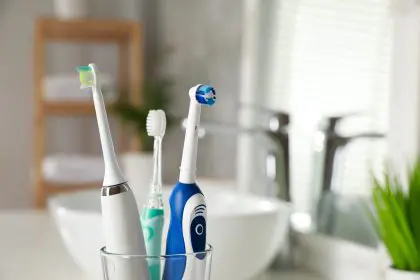In recent years, activated charcoal has emerged as a revolutionary natural solution for teeth whitening, offering hope to those struggling with stained teeth from common beverages like coffee, tea, and wine. This natural alternative has gained significant attention not only for its whitening properties but also for its broader oral health benefits, including cavity prevention and breath freshening through pH balance regulation.
Understanding activated charcoal
Unlike regular charcoal used for grilling, activated charcoal undergoes a specific oxidation process that creates a highly porous surface structure. This unique characteristic transforms it into what scientists describe as an “impurity magnet,” capable of attracting and binding to various substances including metals, chemicals, and toxins. When applied to teeth, this same mechanism works to pull away staining compounds, particularly tannins from beverages that cause yellowing.
The science behind the blackness
The effectiveness of activated charcoal lies in its adsorption properties – a process where substances adhere to its surface rather than being absorbed into it. This distinction proves crucial for oral health applications, as it means the charcoal acts like a superficial cleaning agent, pulling away surface stains without penetrating or damaging the tooth structure. The process particularly targets organic compounds responsible for discoloration, such as coffee, tea, and wine stains.
Safety considerations
One of the most common concerns about charcoal teeth whitening involves its safety profile. Research supports its safe use as a dental cleaning agent, particularly given its long history in medical settings for treating poisoning and overdoses. The adsorption process works unidirectionally, meaning once toxins bind to the charcoal, they don’t release back into the body. Importantly, this process shows selectivity – it removes harmful compounds while leaving beneficial minerals in tooth enamel intact.
Practical application tips
For optimal results, dental professionals recommend using activated charcoal for teeth whitening two to three times weekly. However, proper application requires careful attention to prevent staining of surrounding surfaces. The material’s intense black color necessitates protective measures for counters, floors, and clothing during use. Many users find it helpful to designate specific tools and areas for their charcoal whitening routine.
The experience of use
While the appearance of black powder on teeth might seem disconcerting initially, users often express surprise at its tasteless nature. The texture presents as slightly gritty, but without any discernible flavor, making it more tolerable than many commercial whitening products. This characteristic, combined with its natural origin, adds to its appeal for those seeking chemical-free alternatives.
Professional considerations
Individuals with dental work such as crowns, caps, or porcelain veneers should exercise caution, as activated charcoal may cause staining of these artificial surfaces. Additionally, those experiencing tooth sensitivity should discontinue use and consult their dental professional. These considerations highlight the importance of understanding one’s specific dental situation before beginning any whitening regimen.
Maintenance and care
Using activated charcoal effectively requires proper maintenance of tools and surfaces. Many users opt for dedicated toothbrushes, as the black powder can prove challenging to completely remove from bristles. Alternative options include pre-formulated charcoal toothpaste products, which offer similar benefits with reduced mess and easier application.
Long-term benefits
Beyond immediate whitening effects, regular use of activated charcoal can contribute to overall oral health improvement. Its ability to modify mouth pH helps create an environment less conducive to cavity-causing bacteria. This protective effect, combined with its capacity to combat bad breath and support gum health, makes it a comprehensive oral care solution.
Economic advantages
Compared to professional whitening treatments and many over-the-counter options, activated charcoal presents a cost-effective alternative. Its concentrated nature means a small amount goes a long way, providing extended use from a single purchase. This economic benefit, combined with its natural origin, makes it an attractive option for those seeking sustainable dental care solutions.
Preventive measures
Success with charcoal teeth whitening often depends on proper preventive measures. Protecting surfaces from staining requires careful preparation and cleanup. Users should consider creating a dedicated space for their whitening routine, using protective covers for counters and wearing appropriate clothing to prevent permanent staining of fabrics.
Future of natural dental care
As interest in natural health solutions continues to grow, activated charcoal represents a significant development in dental care alternatives. Its combination of effectiveness, safety, and affordability positions it as a valuable option in the evolving landscape of oral health products. Ongoing research continues to explore additional benefits and applications of this versatile substance.














